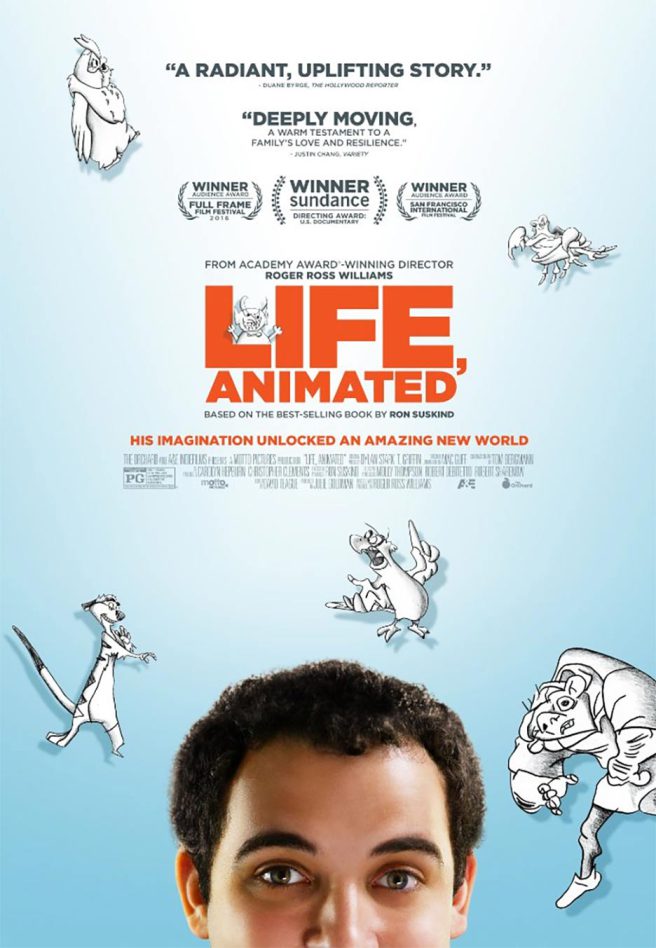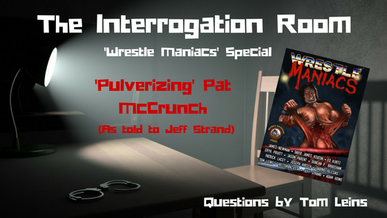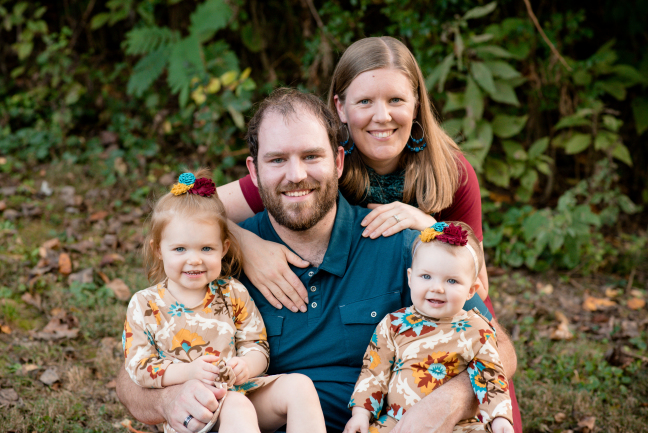
Life, animated, directed by Roger Ross Williams (2016).
Score: beautiful and understanding.
Autism, like many other mental disorders, is barely understood by the mainstream. There is a trend in fiction to introduce highly-intelligent, socially inept characters such as Sheldon Cooper (he’s not crazy, his mother had him tested), Criminal Minds’ Spencer Reid or BBC’s Sherlock and people will automatically assume they have an autism spectrum disorder such as Asperger syndrome. Even Mark Haddon had to say that The curious incident of the dog in the night-time wasn’t actually about Asperger’s, because he came so close to its popular conception that people assumed he had done extensive research about it.
This is why the existence of movies like this one makes me very happy. Life, animated is a documentary about Owen Suskind, the son of journalist Ron Suskind, who suffers from autism. Using home videos of Owen as a kid, original animated sequences and present-day footage and testimonies from the Suskind family, Owen’s progress to almost total autonomy is charted. In the early years when Owen wasn’t able to speak, his family realized that Owen really enjoyed watching Disney animated movies with the rest of them. He started repeating lines from the movies (a phenomenon called echolalia) and Ron eventually found a way to speak with him using a Iago the parrot puppet.
His therapists explain that Owen’s autistic disorder means he has a very hard time managing as many stimuli as everyday life exposes him to, but cartoons, for its simplified and predictive nature, provide him with a way to perceive the world in a tractable way and act as a gateway to autonomy. Hear me out: don’t we all use fiction in a similar way? Don’t we all use it as a mirror, as catharsis, as a self-knowledge tool? Like David Mamet said, we don’t go to the theatre to forget, but to remember.
This is Life, animated’s greatest virtue: it doesn’t try to make you feel sorry for Owen, it wants you to relate to him, and it’s very easy to do. There is some explaining of Owen’s disorder but the documentary is mostly focused on showing how he has improved and overcome many obstacles in his life, with the help of his therapists and a close-knit community. The fear and reject some may feel towards people with mental disorders would be much smaller if we knew them better and saw they’re people just like everyone else, who want to be happy and loved.
This documentary is a great step towards that direction.
Share it:- More





